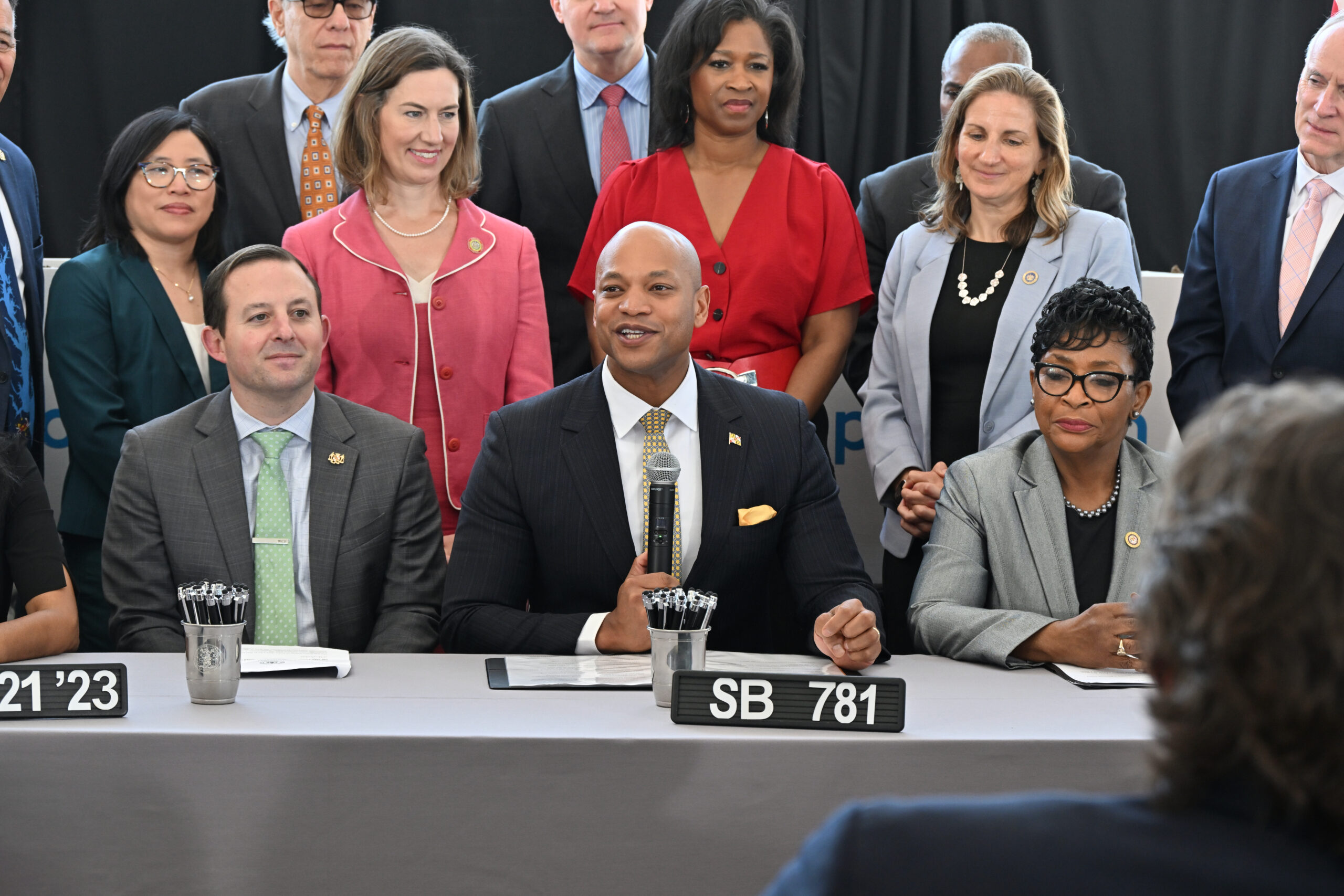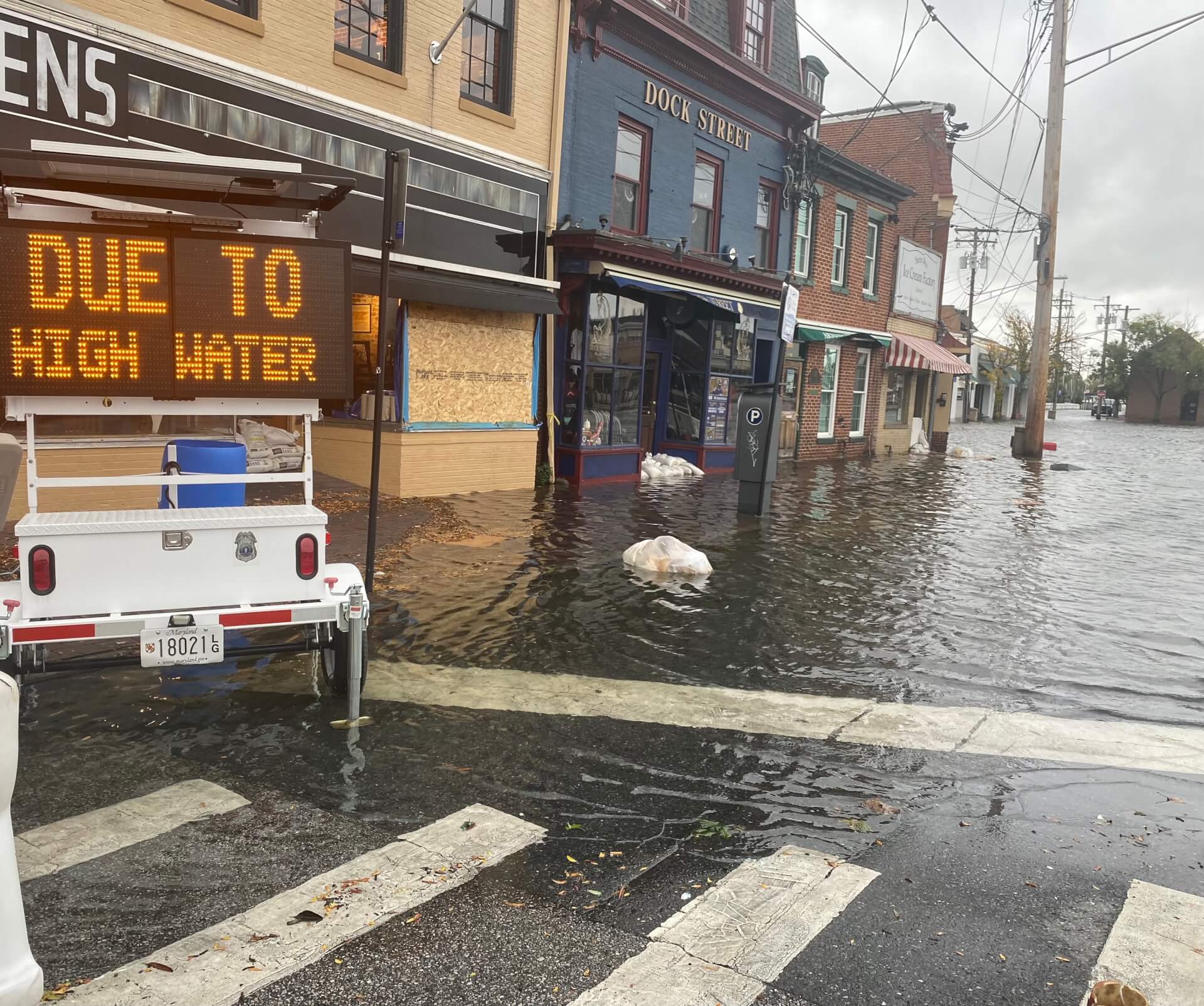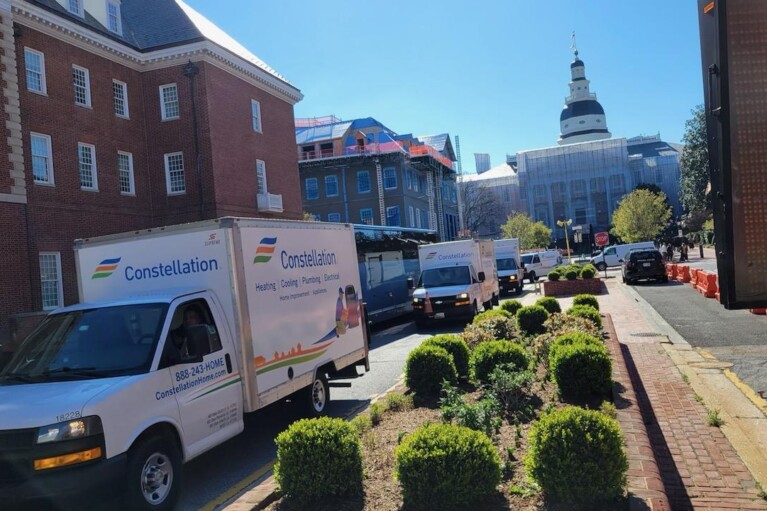State’s climate town halls are set to kick off, and national podcasters are paying attention to Md. legislation

As policymakers begin to solicit public opinion on a recently released blueprint for achieving the state’s ambitious climate goals, prominent environmental podcasters are focusing national attention on some key pieces of Maryland climate legislation.
Late last month, the Maryland Department of the Environment issued a document outlining possible steps the state can take to meet the goals for reducing carbon emissions that were laid out in the Climate Solutions Act legislation of 2022. The agency said it would hold a series of town meetings across the state to gauge public opinion before issuing a final report by the end of the year with recommendations for tangible action. Many of the recommendations are expected to result in legislation to be taken up in the 2024 General Assembly session.
This week, the Department of the Environment laid out the schedule for seven public meetings — five of which will be held in person, with two additional hearings to be held online. The first is scheduled for next Tuesday at 6 p.m. at Bowie State University, 14000 Jericho Park Rd., Bowie, in the Proctor Building. The rest of the schedule:
- Aug. 8 at 6 p.m. at Hagerstown Community College, 11400 Robinwood Dr., Hagerstown, Room BSH-114
- Aug. 19 at 2 p.m. at Salisbury University, 1101 Camden Ave., Salisbury, in the Purdue Building
- Sept. 5, online, from 1 p.m. to 2:30 p.m., for elected officials only
- Sept. 12, at 6 p.m., at Morgan State University, 5299 Perring Parkway in Baltimore, at the Center for the Built Environment and Integrated Studies
- Sept. 19, at 6 p.m., at the College of Southern Maryland, 115 J W Williams Rd., Prince Frederick, Room PFB-103
- Sept. 26, online, from 6 p.m. to 7:30 p.m., for the general public.
The public can register to attend any of the sessions at http://bit.ly/MDlisteningsessions.
“We want to hear from everyone as we form a robust plan to combat climate change head on,” said Serena McIlwain, secretary of the Maryland Department of the Environment. “Making Maryland a global leader on this critical issue requires an all-of-society and all-of-government approach.”
That Maryland may one day be considered a leader in battling climate change has long been a goal of legislative Democrats, state environmental groups and, more recently, Gov. Wes Moore (D). And they may be moving closer to that goal: While state policymakers prepare for the next steps in the process of attempting to stem climate change, Maryland appears to be gaining more attention for its climate legislation.
Two recent national podcasts that often focus on climate change recently aired segments on Maryland climate change bills: last year’s Climate Solutions Act, and the POWER Act, a bill that passed this year to expand offshore wind energy capacity in federal waters off the coast of Ocean City.
The Climate Solutions Act was the topic of an episode last month of “Connect the Dots,” a podcast from the Center for Progressive Reform, a nonprofit research and advocacy organization in Washington, D.C. This year’s season of the podcast is meant to spotlight policy victories on climate and environmental justice issues across the country.
“We have wins, and when we have them we have to celebrate them and learn from them,” said Rob Verchick, the podcast host.
Over the course of 27 minutes, Verchick chatted with Katlyn Schmitt, a senior policy analyst at the Center for Progressive Reform, which was part of the coalition that worked to pass the legislation. Schmitt talked about working with various stakeholders to pass the legislation — from lawmakers to advocates to industry representatives to local governments — and about being vigilant for “misinformation” that the bill’s opponents were peddling.
The Center for Progressive Reform was a particularly integral part of the effort to provide research about the legislation and prepare talking points and fact sheets for advocates. Schmitt also discussed the strategy sessions, and noted, “Sometimes perfection gets in the way of progress.”
Verchick said he was impressed with the environmental justice provisions in the legislation and said it was noteworthy that the legislation went through when a Republican governor, Larry Hogan, was in office. Hogan did not sign the bill but let it become law without his signature.
“The Climate Solutions Now positions Maryland as a national leader in climate solutions planning,” Verchick said.
Also last month, a clean energy podcast called “Volts,” hosted by David Roberts, a longtime writer on climate change and environmental issues, featured Del. Lorig Charkoudian (D-Montgomery), who was the chief House sponsor of Maryland’s POWER Act, the bill to expand offshore wind capacity in the state.
“Maryland finds a just, more politically durable way to fund offshore wind,” Roberts said, teasing the interview.
The 51-minute discussion was very wonky, with Charkoudian and Roberts talking about “ORECS” — the state’s incentives for offshore wind developers and for utilities to use wind energy, the procurement process laid out in the bill, the labor provisions and the proposals for connecting the offshore wind turbines with the electric grid onshore.
“You can tell I’m kind of in love with this bill,” Charkoudian said at one point during the podcast.
But she acknowledged that the progress of offshore wind energy, at the national level, has been stymied by local opposition, the Trump administration’s lack of enthusiasm, the pandemic, supply chain shortages, and transmission challenges. Roberts summed it up in a sentence: “You got NIMBY’d,” he said.
Roberts also praised the name of the Maryland legislation — the POWER Act stood for Promoting Offshore Wind Energy Resources — and wondered if Charkoudian came up with it. She laughed and credited Jamie DeMarco, Maryland director for the Chesapeake Climate Action Network, with the idea.
“Good acronym work,” Roberts said.




 Creative Commons Attribution
Creative Commons Attribution